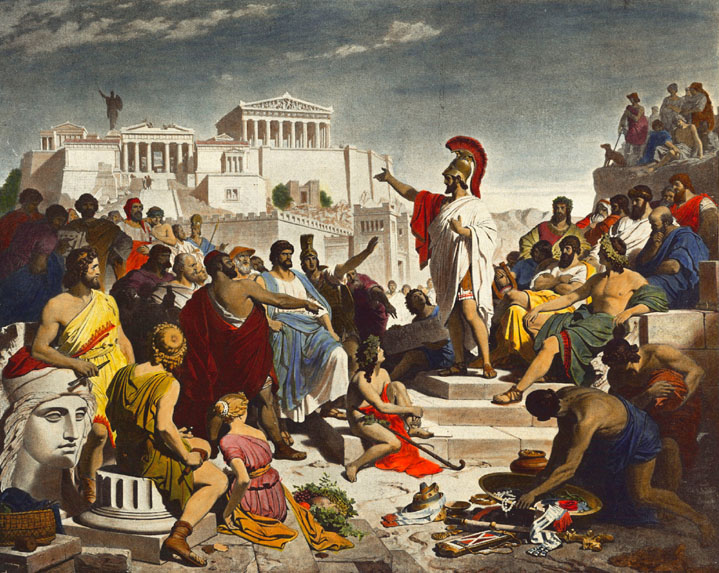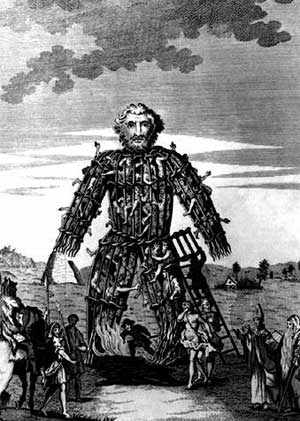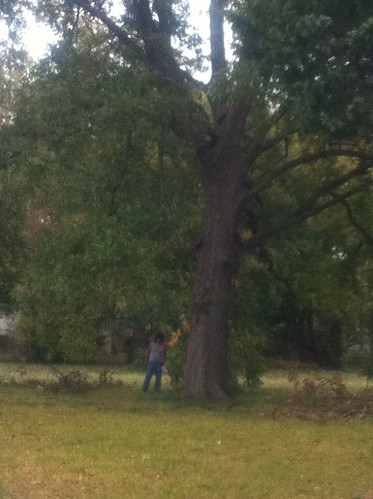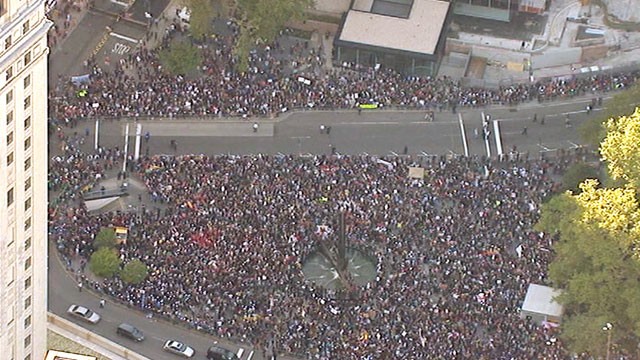
It is an interesting thing to watch the tired old Palestinian fighters, who have spent their whole lives competing with the Israelis for control of the same soil, present their
petition for statehood to the United Nations. In part because the idea that such a process even exists is so science fictionally cool, because it represents the possibility of creating new states—maps do change, as we have all seen in our lives, and the possibilities for how much they could change are theoretically boundless.
The criteria are pretty simple: you need to have some real estate over which you exercise internal and external sovereignty, a permanent population, a government, and the capacity to enter into relations with other sovereign states. Simple enough, but for the unspoken part about the other people who might think it's *their* sovereignty to exercise.

Imagine, if you will, a near-future Texas—say fifty years out—whose demographics have radically changed, such that the only Perry that could ever be elected to statewide office would be a Perez. It is not hard to imagine such a sub-state of the United States deciding it wanted to return to becoming a sovereign state of its own. And that to accomplish such an act isn't really about the legalities under the flaccid regime of international law, the law of an imaginary sovereign with no real ability to enforce its edicts, but about the military ability to keep out occupying armies and the political ability to secure diplomatic recognition. Just ask the Confederates—the
political theory underpinning our legal systems has never really articulated a coherent legal code defining when and how new states can be created within existing ones. Which doesn't stop a whole lot of
free thinking iconoclasts from trying.

[Pic: President Kevin Baugh of the
Republic of Molossia, aka a piece of land outside Reno, Nevada.]
Of course Abbas wants to get after the issue now, in the fall of the Arab Spring, as the incipient leaders of post-revolution territories
debate their visions for a 21st century Arab state. But to do so also seems very anachronistic, when we are in a historical moment that reveals the the culture of the
Jewish diaspora a much more relevant model for the organization of peoples than a piece of land with a fence around it and some ruling fathers running the rancho. Isn't the real power of the modern Israeli state based on the pre-
Westphalian power of the transnational, inter-state network of supporters, who want the state because it articulates the existence of the network in the only terms that were understood by the post-colonial, post-WWII rulers of the world atlas?
In this century, the network is a more compelling model for the polity than the nation state.

The signs are all there in the
outstanding roundup by Nicholas Kulish at The New York Times of the post-democracy movements emerging around the world—
As Scorn for Vote Grows, Protests Surge Around Globe.
Surprise: the generations raised in cyberculture don't take the truths of constitutional democracy as self-evident.
Increasingly, citizens of all ages, but particularly the young, are rejecting conventional structures like parties and trade unions in favor of a less hierarchical, more participatory system modeled in many ways on the culture of the Web.
In that sense, the protest movements in democracies are not altogether unlike those that have rocked authoritarian governments this year, toppling longtime leaders in Tunisia, Egypt and Libya. Protesters have created their own political space online that is chilly, sometimes openly hostile, toward traditional institutions of the elite.
The critical mass of wiki and mapping tools, video and social networking sites, the communal news wire of Twitter and the ease of donations afforded by sites like PayPal makes coalitions of like-minded individuals instantly viable.
“You’re looking at a generation of 20- and 30-year-olds who are used to self-organizing,” said Yochai Benkler, a director of the Berkman Center for Internet and Society at Harvard University. “They believe life can be more participatory, more decentralized, less dependent on the traditional models of organization, either in the state or the big company. Those were the dominant ways of doing things in the industrial economy, and they aren’t anymore.”
Yonatan Levi, 26, called the tent cities that sprang up in Israel “a beautiful anarchy.” There were leaderless discussion circles like Internet chat rooms, governed, he said, by “emoticon” hand gestures like crossed forearms to signal disagreement with the latest speaker, hands held up and wiggling in the air for agreement — the same hand signs used in public assemblies in Spain. There were free lessons and food, based on the Internet conviction that everything should be available without charge.
Someone had to step in, Mr. Levi said, because “the political system has abandoned its citizens.”
The rising disillusionment comes 20 years after what was celebrated as democratic capitalism’s final victory over communism and dictatorship.
In the wake of the Soviet Union’s collapse in 1991, a consensus emerged that liberal economics combined with democratic institutions represented the only path forward. That consensus, championed by scholars like Francis Fukuyama in his book “The End of History and the Last Man,” has been shaken if not broken by a seemingly endless succession of crises — the Asian financial collapse of 1997, the Internet bubble that burst in 2000, the subprime crisis of 2007-8 and the continuing European and American debt crisis — and the seeming inability of policy makers to deal with them or cushion their people from the shocks.
Frustrated voters are not agitating for a dictator to take over. But they say they do not know where to turn at a time when political choices of the cold war era seem hollow. “Even when capitalism fell into its worst crisis since the 1920s there was no viable alternative vision,” said the British left-wing author Owen Jones.
Will the law students of the future learn Robert's Rules of Emoticons? It seems very likely to me. As suggested in last month's post,
In the Panopticon, no one can hear your reboot, it seems indisputable that contemporary networking technologies present more compelling tools for the construction of direct democracy than have ever existed. These under-40s all over the world who are the natives of the realm of those technologies are naturally forming their own political networks using those tools. And these imminent polities may violate all the geopolitical conventions of land, language, and ethnicity.
Geopolitics isn't going away, but it is going to have its work cut out for it dealing with the emerging 21st century cyberpolitics.
What will the United Nations Security Council do about sovereign polities that assert themselves in the ethereal space of the network, even controlling resources and behaviors through the systems of the network, without needing to wall in any segments of the physical world?
What will happen when a virtual world secedes from the jurisdiction of the governments of the physical world?
What happens when a virtual polity decides to assert dominion over the physical world?

This mode seems the first really viable alternative approach to political choice, and the idea of democratic representation, to emerge in a long time. The NYT piece tries to place it within the existing dualistic right/left paradigm, but that kind of watered down Hegelian
dialectic doesn't really have any place in the network. A network parliament would be a polyphony. A network parliament, in all likelihood, wouldn't be a parliament—it would be the People.
In a time when modern Greece is crumbling as a sovereign republic, is it too utopian to imagine the planet as a virtual Athens, governed by a network-enabled
direct democracy? It is certainly a scary idea for the power elites of the world, the rulers of all the contemporary republics quietly scornful of popular opinion while relentlessly pandering to it and manipulating it in their own political and financial interests. And the American
Founders would have no trouble scaring us with the idea of how horrific it could be to live in a society ruled by an Internet mob.
Lots to worry about in how to construct effective operating systems for that sort of polity, but the truth that seems self-evident to me is that we need to start tackling those tasks in earnest, because it's already starting to happen.

















































